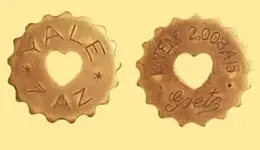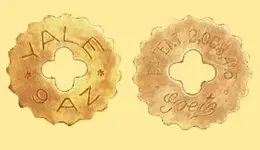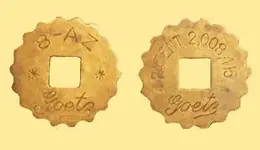Erik in NJ
Silver Member
- Joined
- Oct 4, 2010
- Messages
- 4,037
- Reaction score
- 3,043
- Golden Thread
- 1
- Location
- The Garden State
- 🥇 Banner finds
- 1
- Detector(s) used
- Minelab Explorer SE Pro & CTX-3030
- Primary Interest:
- Metal Detecting
Spent a week with my family up in Cape Cod last week and despite the brutal heat we endured for most of the week I did manage to get out for some detecting when I could. I was graciously given permission to a couple properties that dated back to the 1700s (one early 1700s and the second one the late 1700s). The third property I don't have a date on, but it only yielded some modern clad.
The first property was dated ca 1730. After 15 minutes of gridding the side yard I was rewarded with a nice plain " * Treble Gilt *" flat button with a broken shank. This was shortly followed by a lovely plain Colonial shoe or knee buckle without the chape. I got a signal on the other side of the yard which at first glance appeared to be a knockout from a metal box. On closer inspection it turned out to be a well worn Type I SQL (1916-17)! In the front yard I found a few wheats and a very deep silver Rosie from 1947. One suprise find was the pocketwatch part which is stamped 17884. It appears to be gold plated or gilted and has been milled on a lathe. I suspect that this property has many good finds due to its age, but I fear that many are now too deep due to the very sand soil in the area. I will try to re-grid this yard again sometime with my CTX and the 18" coil.
The other property down the street contains a house that was built in the late 1700s. One of my first finds (and it was relatively shallow) was the pocketknife with raised scollwork and lettering. On one side it says "Safety First Pays" on the other side it says "Safety Award" followed by the engraved name H.R. Turner (presumably the recipient of the award).
I found the following text on the Internet regarding a similar pocketknife:
You are bidding on beautiful three inch "Safety First Pays" award knife manufactured by Robeson ShurEdge. This knife is in excellent condition, with patina on the solid bronze scales but no corrosion. It is stamped with Robeson Cutlery USA on the small blade, indicating a manufacture date of pre-1942. Online research indicates the "Safety First Pays" campaign to have been at its peak following WW I till the early 1920s, when companies were trying to reduce the injury and death rate of their employees while on the job. The blades of this knife are unsharpened and unused. The scales are beautifully worked with raised scrollwork and are marked with raised letters "Safety First Pays" on one side and "Safety Award" on the other. It is also engraved with the name J. A. Purser, who we can assume was the award recipient.
I also found what I believe is a lead cloth seal which stems from Colonial times. I finished the day with a second dateless SQL (S mintmark) and a 1954 Washington quarter (D mintmark). On a return trip to this property I hit a clad pocket spill. After filling in the hole, I rescanned and got a target that was much deeper than any of the coins in the spill! In fact, it was a broken signal on my SE Pro and at the outer depth range of my machine. I re-dug the hole and was rewarded with a lovely 1866 2-Cent piece. I've been lucky enough to dig about eight or nine of these coins so far, but I believe this is my first 1866.
One final find I believed to be the thumbwheel of a lantern. I has a scalloped edge and reads "Goetz o Patent 2,008,415" on one side and "Goetz * 9-AZ" on the other. The center is punched out with a "+". Turns out that it's a telephone token from the early 20th century--and a beautiful one at that! I have found similar ones on the Internet, but no exact match yet.
Anyway, I had a wonderful time in Cape Cod with my wife and kids. I had some great seafood and clam chowder and made some new friends. The icing on the cake was getting out detecting a few times in the area!
The first property was dated ca 1730. After 15 minutes of gridding the side yard I was rewarded with a nice plain " * Treble Gilt *" flat button with a broken shank. This was shortly followed by a lovely plain Colonial shoe or knee buckle without the chape. I got a signal on the other side of the yard which at first glance appeared to be a knockout from a metal box. On closer inspection it turned out to be a well worn Type I SQL (1916-17)! In the front yard I found a few wheats and a very deep silver Rosie from 1947. One suprise find was the pocketwatch part which is stamped 17884. It appears to be gold plated or gilted and has been milled on a lathe. I suspect that this property has many good finds due to its age, but I fear that many are now too deep due to the very sand soil in the area. I will try to re-grid this yard again sometime with my CTX and the 18" coil.
The other property down the street contains a house that was built in the late 1700s. One of my first finds (and it was relatively shallow) was the pocketknife with raised scollwork and lettering. On one side it says "Safety First Pays" on the other side it says "Safety Award" followed by the engraved name H.R. Turner (presumably the recipient of the award).
I found the following text on the Internet regarding a similar pocketknife:
You are bidding on beautiful three inch "Safety First Pays" award knife manufactured by Robeson ShurEdge. This knife is in excellent condition, with patina on the solid bronze scales but no corrosion. It is stamped with Robeson Cutlery USA on the small blade, indicating a manufacture date of pre-1942. Online research indicates the "Safety First Pays" campaign to have been at its peak following WW I till the early 1920s, when companies were trying to reduce the injury and death rate of their employees while on the job. The blades of this knife are unsharpened and unused. The scales are beautifully worked with raised scrollwork and are marked with raised letters "Safety First Pays" on one side and "Safety Award" on the other. It is also engraved with the name J. A. Purser, who we can assume was the award recipient.
I also found what I believe is a lead cloth seal which stems from Colonial times. I finished the day with a second dateless SQL (S mintmark) and a 1954 Washington quarter (D mintmark). On a return trip to this property I hit a clad pocket spill. After filling in the hole, I rescanned and got a target that was much deeper than any of the coins in the spill! In fact, it was a broken signal on my SE Pro and at the outer depth range of my machine. I re-dug the hole and was rewarded with a lovely 1866 2-Cent piece. I've been lucky enough to dig about eight or nine of these coins so far, but I believe this is my first 1866.
One final find I believed to be the thumbwheel of a lantern. I has a scalloped edge and reads "Goetz o Patent 2,008,415" on one side and "Goetz * 9-AZ" on the other. The center is punched out with a "+". Turns out that it's a telephone token from the early 20th century--and a beautiful one at that! I have found similar ones on the Internet, but no exact match yet.
Anyway, I had a wonderful time in Cape Cod with my wife and kids. I had some great seafood and clam chowder and made some new friends. The icing on the cake was getting out detecting a few times in the area!
Amazon Forum Fav 👍
Attachments
-
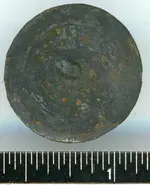 Flat Button (back).webp74.9 KB · Views: 183
Flat Button (back).webp74.9 KB · Views: 183 -
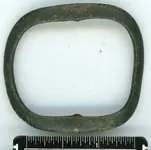 Colonial Buckle (front).webp144.1 KB · Views: 172
Colonial Buckle (front).webp144.1 KB · Views: 172 -
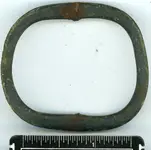 Colonial Buckle (back).webp139.6 KB · Views: 168
Colonial Buckle (back).webp139.6 KB · Views: 168 -
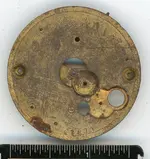 Pocket Watch Part235.webp383.5 KB · Views: 204
Pocket Watch Part235.webp383.5 KB · Views: 204 -
 Pocket Knife263.webp315.8 KB · Views: 197
Pocket Knife263.webp315.8 KB · Views: 197 -
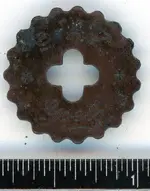 What Is It262.webp79.1 KB · Views: 190
What Is It262.webp79.1 KB · Views: 190 -
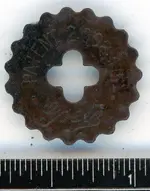 What Is It261.webp75.5 KB · Views: 174
What Is It261.webp75.5 KB · Views: 174 -
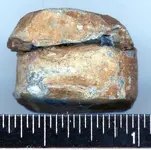 Cloth Seal256.webp78.1 KB · Views: 156
Cloth Seal256.webp78.1 KB · Views: 156 -
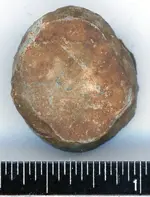 Cloth Seal254.webp78.2 KB · Views: 155
Cloth Seal254.webp78.2 KB · Views: 155 -
 Pocket Knife264.webp270.5 KB · Views: 202
Pocket Knife264.webp270.5 KB · Views: 202 -
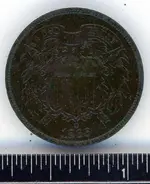 2 Cent 1866 (reverse)260.webp101.6 KB · Views: 204
2 Cent 1866 (reverse)260.webp101.6 KB · Views: 204 -
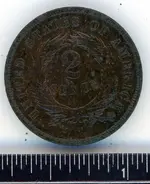 2 Cent 1866 (obverse)259.webp107.3 KB · Views: 217
2 Cent 1866 (obverse)259.webp107.3 KB · Views: 217 -
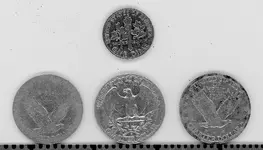 Silver270.webp488.1 KB · Views: 223
Silver270.webp488.1 KB · Views: 223 -
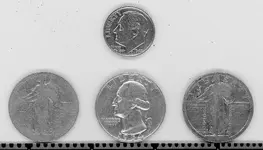 Silver269.webp455.3 KB · Views: 231
Silver269.webp455.3 KB · Views: 231
Last edited:
Upvote
15






